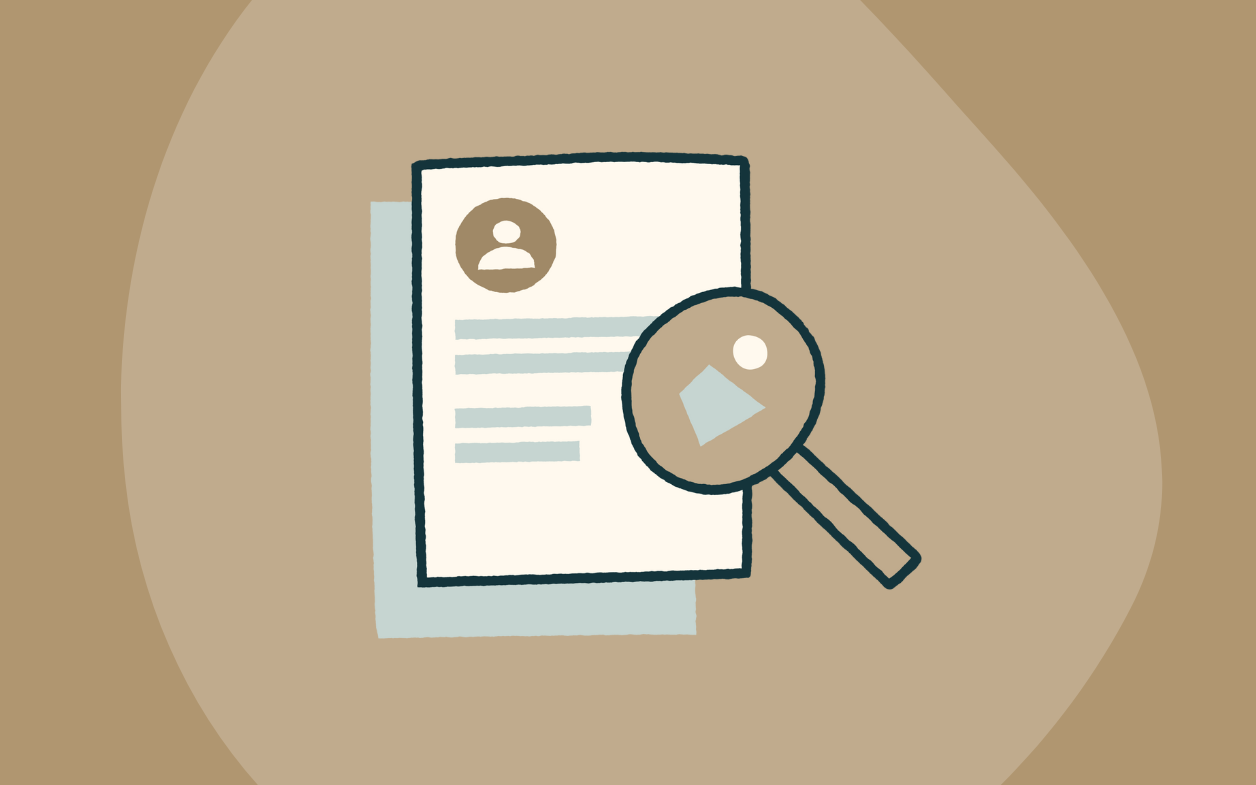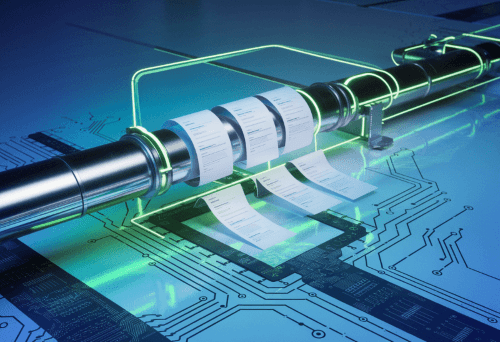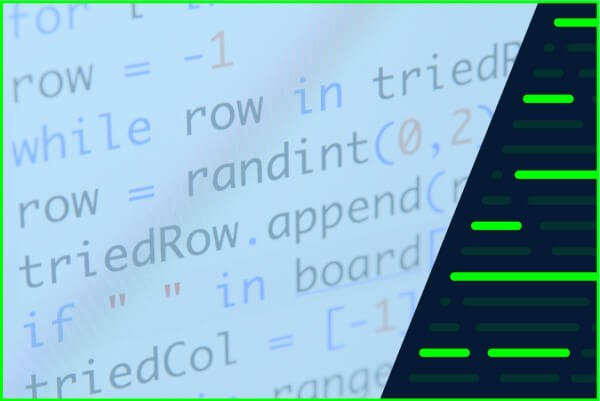OCR technology powering modern resume parsing is transforming CVs into instant, actionable insights – helping the platforms you build deliver faster, smarter and more reliable candidate data for your customers.
If you remember early resume parsers, you’ll remember your team and your customers had to do most of the heavy lifting themselves. That early technology relied on strict templates and rules, making it hard to automate anything outside a standard format. PDFs were especially challenging – particularly when scanned.
Thankfully, times have changed. Effective OCR resume scanning solves the challenges of the past – and more. OCR, or optical character recognition, enables computers to read text from images or scanned documents. In recruitment and talent acquisition practices, it bridges the gap between a static CV and structured data your applicant tracking system (ATS), job board or other HR tech can actually use – with significantly reduced error rates.
With the integration of AI resume parsers into recruitment technology, vendors worldwide are delivering far more accurate extraction performance without needing to build complex, costly parsing infrastructure in-house. Extracting data from a PDF file or Microsoft Word document is no longer a problem; it’s fast, accurate and fully automated.
In short, OCR is the foundation of every great AI resume parser. And when it’s powered by advanced AI, OCR resume scanning can turn manual data processing into automated, structured inputs for your platform.
What is OCR and how does it work in resume parsing?
OCR is the technology that enables computers to read and extract text from images or scanned documents. For recruitment technology, OCR resume scanning bridges the gap between inaccessible, unstructured files and clean, usable data your systems can process in seconds.
Modern resume OCR combines this technology with natural language processing to read context as well as characters. The result? Smarter, more consistent resume data extraction – even from complex layouts or low-quality scans.
Think of OCR as the first step in turning every resume, no matter how it’s formatted, into usable candidate information. The resume OCR detects letters and words within the file, converts them into digital text and passes that text through trained machine-learning (ML) models (and not large language models or LLMs). These models then identify key details such as skills, experience, job titles and education.
For the recruiters using your HR tech, that means no more manual data entry or teams struggling to read inconsistent layouts. Your platform becomes the source of clean, structured data your customers can rely on.
Modern CV OCR technology can even interpret complex or low-quality documents, delivering data ready for analysis and downstream automation within your customers’ database.
Why OCR matters for resume parsing
Not every candidate submits a perfectly formatted Word document or clean PDF. Many still upload scanned PDFs, screenshots or even photos of their CVs. Without OCR, those files are just images – unreadable to your applicant tracking system or job board.
OCR resume scanning changes that by transforming any resume format into structured, machine-readable text. Instead of struggling with inconsistent layouts or missing information, your platform can return complete, searchable fields your customers rely on. Every key detail – from contact information to skills and experience – becomes visible and searchable across your customers’ entire candidate pool.
Resume OCR also levels the playing field for candidates. Whether a CV was created in Canva, exported as a PDF or scanned from paper, OCR ensures every application is processed consistently. No more missed data or hidden information because of a tricky layout.
By turning unsearchable resumes into structured, reliable data, OCR CV tools help your technology deliver faster filtering, smarter matching and a more complete candidate profile.
How has OCR resume scanning evolved?
OCR resume scanning and parsing have come a long way from their early days. The first OCR resume tools could only recognize text that fit within strict templates, which made them unreliable when CVs looked even slightly different. Recruiters often had to double-check every field – a process that defeated the purpose of automation.
Modern OCR resume scanning doesn’t rely on templates or predefined layouts. Instead, it uses AI trained on large, diverse datasets and ML models to understand the structure of each document on its own terms. The system learns to identify names, job titles, skills and dates – no matter where they appear on the page.
This shift from rule-based parsing to intelligent AI parsing means your platform can process far more resumes with higher accuracy and less manual fallback. Resume OCR now adapts to new formats automatically – whether it’s a two-column PDF, a scanned image or a creative CV design.
The result is simple: less manual correction, faster shortlisting and higher data accuracy. With AI-powered OCR integrated into your HR tech, your customers can finally trust your platform to handle diverse resume formats at scale.
Types of OCR used in resume parsing (and why accuracy varies)
Not all OCR technologies are created equal. Over time, three main types have emerged – each offering a different level of intelligence and accuracy when scanning resumes.
1. Simple OCR – template-based extraction
Early OCR systems relied on predefined templates. They matched characters to stored patterns, which worked only if the resume followed an exact format. As soon as the layout changed or a new font appeared, accuracy dropped. Vendors had to implement heavy rule-based logic, and end users still spent time fixing errors.
2. Intelligent character recognition (ICR) - reading handwritten CVs
ICR was the next step forward. It uses machine learning to recognize handwritten or stylized text, learning from each correction over time. For recruiters and talent teams, this meant the ability to extract data even from scanned or signed CVs – a big leap in flexibility compared to basic OCR capability.
3. Intelligent word recognition (IWR) - faster, context-aware resume scanning
IWR takes things further by recognizing entire words instead of individual letters. This delivers quicker, more dependable results – particularly when dealing with high-volume resume uploads. By understanding words in context, IWR improves how resume OCR systems identify names, job titles and qualifications.
Modern OCR resume scanning combines these technologies with AI to deliver the best of all three – speed, accuracy and adaptability – so your platform can process more resumes with fewer errors and less manual review.
How AI enhances OCR for smarter resume parsing
OCR alone can extract text, but it doesn’t always understand what that text means. That’s where AI takes resume parsing to the next level. When OCR and AI work together, your platform outputs cleaner, more consistent and more reliable structured data.
AI adds context and intelligence to OCR resume scanning. It uses natural language processing (NLP) to interpret the meaning behind words and phrases – for example, recognizing that ‘HR Manager’ and ‘Human Resources Manager’ describe the same role. It can also identify more complex relationships, such as understanding that ‘Certified Scrum Master’ relates to project management experience even if the term doesn’t appear directly in a job title.
This combination of OCR and AI transforms static resumes into organized, structured profiles that your applicant tracking system can easily search and match for in a candidate database. It also helps catch nuances, like identifying transferable skills or detecting career gaps that may matter to recruiters.
In short, AI doesn’t just make resume OCR faster – it makes it smarter. The result is better accuracy and less manual quality assurance (QA) work for your engineering or ops teams.
What are the benefits of using AI-powered OCR resume scanning in recruitment?
AI-powered OCR resume scanning helps your platform move faster, reduce manual work and empower better hiring decisions for your customers. It transforms hours of resume review into instant, reliable insights that feed directly into your ATS or job board database.
Here’s how it helps:
- Improves accuracy and consistency – resume OCR software reads every file the same way, no matter the format or design. It captures names, skills, job titles and contact details with precision, reducing manual corrections and human error
- Delivers speed and scalability – OCR, powered by AI, can process thousands of resumes in minutes, so your platform keeps up with volume without performance issues
- Enhances candidate experience – because OCR can handle almost any document type – from PDFs to scanned CVs – your platform removes friction for applicants and ensures every CV is processed fairly. Resume parsing benefits applicants as well as recruiters, because everyone gets the same fair, consistent review
- Unlocks smarter insights – with structured, high-quality data flowing into your ATS, recruiters can search, filter and match candidates more effectively. OCR turns resume parsing from an admin chore into a strategic hiring advantage
AI-driven OCR transforms resume processing into a faster, fairer and more intelligent part of your platform’s processing automation.
Start parsing your PDF resumes with enterprise-grade OCR and AI
Recruiters shouldn’t have to choose between speed and accuracy. With our AI OCR resume scanning, your customers get both.
Our AI technology extracts data from any resume format – PDFs, Word files or scanned CVs – with exceptional accuracy. It delivers clean, structured information straight into your platform, so your customers can shortlist candidates faster and with confidence.
The hiring team sets the key fields for each role, allowing high-confidence resumes to pass through automatically and flagging only the edge cases that require further review.
Start your free trial of our resume parser today and see how enterprise-grade resume OCR can turn manual admin into smarter, faster hiring.












